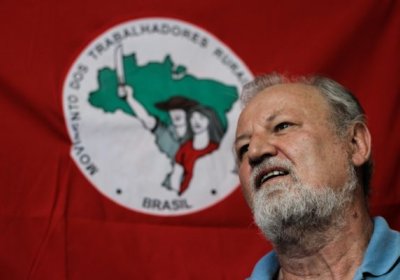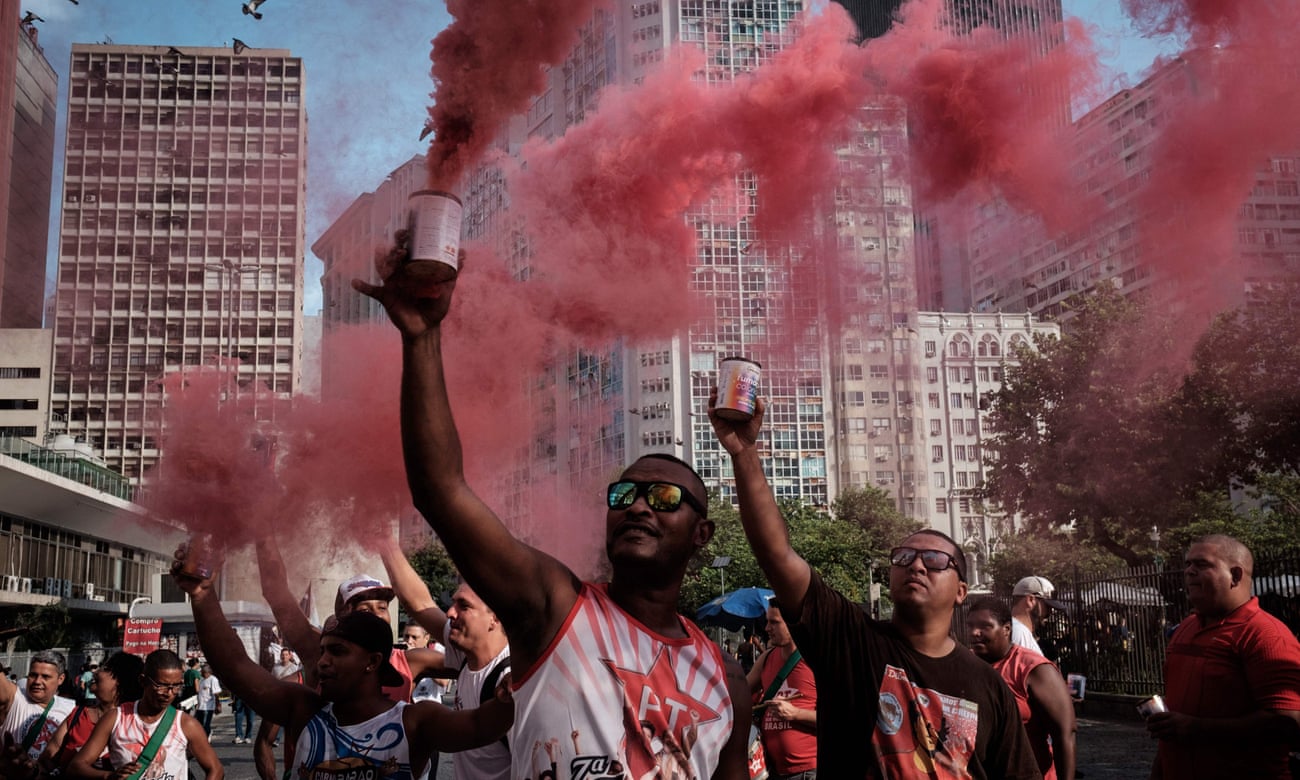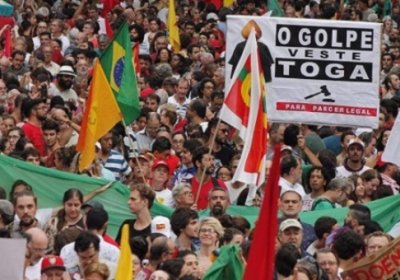MST leader says Brazilians must rise up
Joao Pedro Stedile is a founder and leader of Brazil's Landless Workers' Movement (MST). One of Latin America’s largest social movements, the MST fights for land reform and the rights of poor farmers.
Below, Stedile calls for resistance to the “institutional coup” in Brazil, in which elected Workers’ Party (PT) president Dilma Rousseff was removed by the Senate and Michel Temer installed on August 31.
* * *


 Fans at Rio Olympics hold “Fora Temer” (“Temer out”) signs. August 10.
As Brazil’s media focuses its attention on the Rio Olympics, new revelations continue to shine a light on the glaring contradictions in the unelected government's efforts to impeach suspended President Dilma Rousseff for allegations of fraud.
Fans at Rio Olympics hold “Fora Temer” (“Temer out”) signs. August 10.
As Brazil’s media focuses its attention on the Rio Olympics, new revelations continue to shine a light on the glaring contradictions in the unelected government's efforts to impeach suspended President Dilma Rousseff for allegations of fraud.

 Anti-coup protesters on the streets of Rio de Janeiro in April.
In what has been widely condemned as a US-backed right-wing power grab to impose harsh neoliberal measures, Brazil’s Workers’ Party (PT) President Dilma Rousseff was forced to stand aside by Brazil’s Senate on May 12 while she faces impeachment procedures.
Anti-coup protesters on the streets of Rio de Janeiro in April.
In what has been widely condemned as a US-backed right-wing power grab to impose harsh neoliberal measures, Brazil’s Workers’ Party (PT) President Dilma Rousseff was forced to stand aside by Brazil’s Senate on May 12 while she faces impeachment procedures.

 A National Day of Action to Defend Democracy was held on March 31, to oppose the coup plot against Dilma and mark the anniversary of the 1964 military coup.
Right-wing forces in Brazil are seeking to impeach Workers' Party (PT) President Dilma Rousseff in what has been widely condemned as an “institutional coup”.
A National Day of Action to Defend Democracy was held on March 31, to oppose the coup plot against Dilma and mark the anniversary of the 1964 military coup.
Right-wing forces in Brazil are seeking to impeach Workers' Party (PT) President Dilma Rousseff in what has been widely condemned as an “institutional coup”.


 Photo: CUT.
About 1 million people across Brazil protested on August 20 against right-wing attempts to impeach President Dilma Rousseff.
The marches were joined by Brazil's big social movements, including the Movement of Landless Workers (MST) and the United Workers' Central (CUT), the largest trade union federation in Latin America.
Photo: CUT.
About 1 million people across Brazil protested on August 20 against right-wing attempts to impeach President Dilma Rousseff.
The marches were joined by Brazil's big social movements, including the Movement of Landless Workers (MST) and the United Workers' Central (CUT), the largest trade union federation in Latin America.